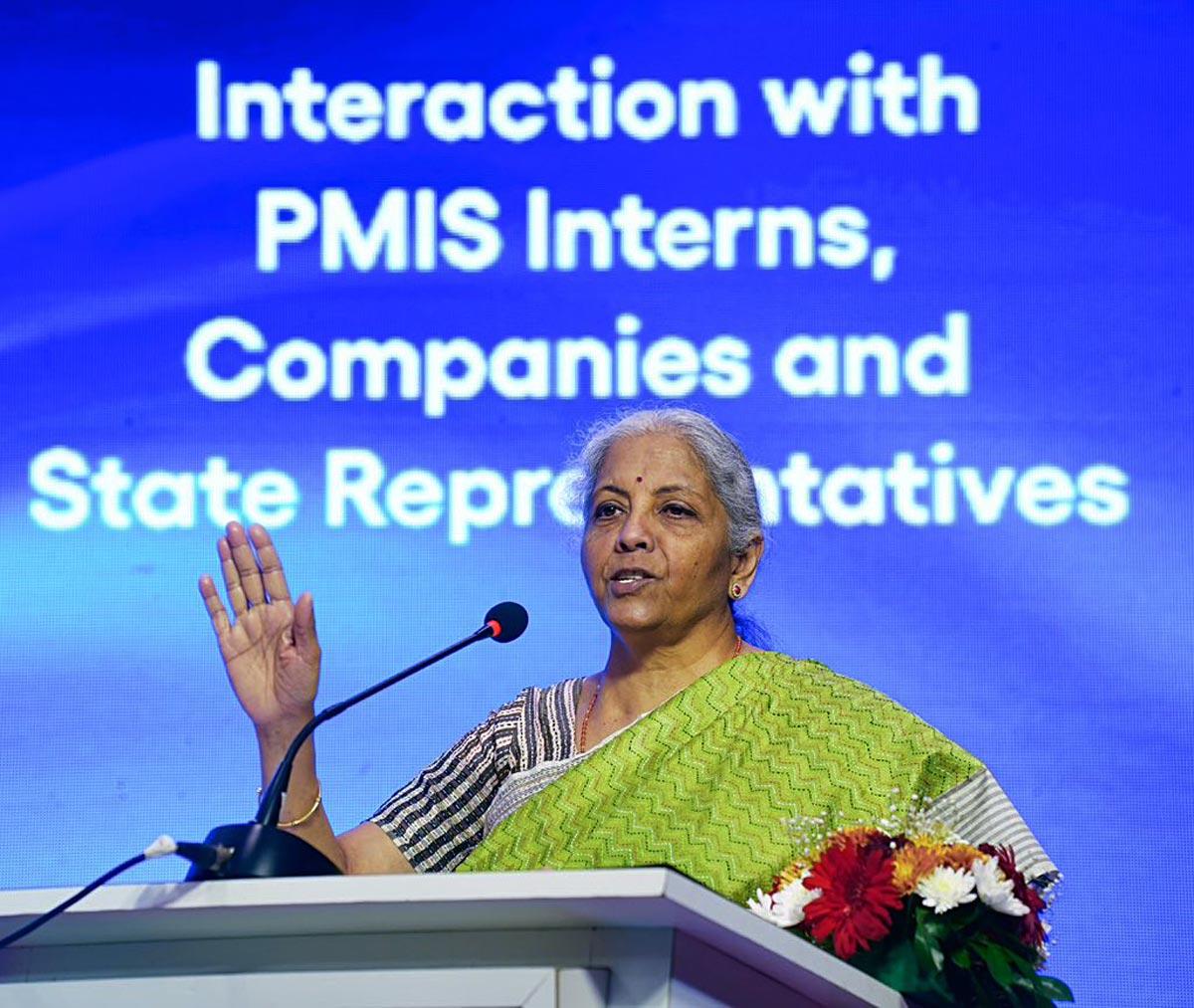‘As a result of delays, the desired reliefs are not coming for taxpayers.’

IMAGE: Finance Minister Nirmala Sitharaman addresses the North East Roundtable in Shillong, July 11, 2025, on the Prime Minister Internship Scheme. Photograph: ANI Photo
Despite more than 500,000 appeals pending at the Commissioner of Income Tax (Appeals), or CIT (A), level, the finance ministry (FinMin) has not favoured mandating statutory deadlines for disposal of such income tax (I-T) appeals.
Experts and stakeholders had made submissions before the Select Committee on the Income Tax Bill, seeking time limits for disposal of appeals.
‘In the Income Tax Bill, 2025, no time limit is prescribed for hearing of the appeal as well as for passing of the order.
‘Even under the Income Tax Act, 1961, no time limit was prescribed.
‘The huge and heavy pendency of appeals before the First Appellate Authorities, viz. the CIT (Appeals) and Jt CIT (Appeals), needs no introduction…
‘Further, the significance and importance of timely disposal of appeals by such a crucial authority as the First Appellate Authority cannot be overemphasised,’ the Select Committee summarised the suggestions by stakeholders on the issue.
In its reply to the Select Committee on the Bill, the finance ministry cited the ‘judicial nature’ of these proceedings, arguing that imposing strict timelines could risk compromising the quality of adjudication.
‘It may be mentioned that for any appellate level, whether it be the Supreme Court, High Court, ITAT (Income Tax Appellate Tribunal) or CIT (A), time limits have not been provided for disposal of appeals as appellate proceedings are judicial proceedings and fast-tracking the same without taking into account the complexity or facts of the case may not be desirable,’ the FinMin said.
The ministry said the statute only provides for the timelines and procedural requirements, and the mechanism to make appellate procedure more efficient and taxpayer-friendly is a continuing exercise taken up through administrative measures.
The FinMin further highlighted recent administrative efforts to reduce pendency, noting that institutional improvements had yielded tangible outcomes.
In 2024-2025 (FY25), a record 172,361 appeals were disposed of, exceeding new filings for the first time and thereby reducing overall pendency as of April 1, 2025.
According to the ministry, appellate cases vary significantly in complexity, and rigid timelines risk compromising the quality of adjudication.
Himanshu Parekh, partner with KPMG, said that the Income Tax Act mandates the Dispute Resolution Panel, which is a collegium of three Commissioners of Income Tax (CITs), to pass orders related to international taxation within a period of nine months.
“When a statutory time limit can be imposed on a panel comprising three CITs, there should be no reason why an appropriate time limit cannot be imposed for disposal of appeals by the CIT (A),” he added.
Vivek Jalan, partner with Tax Connect Advisory Services, said even after great efforts by the Central Board of Direct Taxes (CBDT), cases before the CIT (A) have kept piling up.
“Even petitions praying for early hearing are not entertained as everybody seems to be filing such pleas.
“As a result of these delays, the desired reliefs are not coming for taxpayers, and sometimes just to get the requisite disposals, the quality of judgements are also impacted,” Jalan added.
What Finance Ministry told the Select Committee
- Imposing strict timelines could risk compromising the quality of adjudication
- Appellate cases vary significantly in complexity, and rigid timelines risk compromising the quality of adjudication
- Mechanism to make appellate procedure efficient and taxpayer friendly is a continuing exercise
Feature Presentation: Ashish Narsale/Rediff




